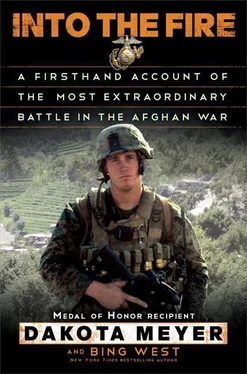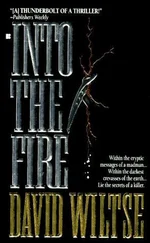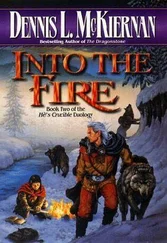Fabayo knew nothing of these movements; the TOC at Joyce had not mentioned them. Such sightings at night were frequent, and few turned out to be serious. Even so, one of the observations came with this note: “Their movement is too organized to be locals; they have a point man, security element and overwatch. Locals do not move like this. They are utilizing terrain, stopping under cover and hesitating at all open areas.”
In fact, Qari Zia Ur-Rahman, head of the Taliban in Kunar Province, had perfect intelligence a day ahead of our movement. He had thrown away his normal tactics, gathered all the forces he could muster, crossed over from Pakistan, and headed toward Ganjigal. He intended to stand and fight from inside the village. Twenty Taliban were already in the village; a fighter named Khadim had fifteen more, and Rahman had another fifteen. A leader named Faqir brought in twenty more and set up in five positions: two on the north side, two on the south side, and one in the middle. At 4:13 A.M., a group of fighters had stopped to pray on a hill two kilometers northeast of Ganjigal. They were seen by an eye in the sky, as were the movements of other men coming our way. Before dawn, they were in place in and around Ganjigal, a village so tough to attack that it had served as a major supply point in the war against the Russians.
Fabayo walked back to the advisor area. Neither Lt. Johnson nor I believed the small task force would roll on time. But we left the wire shortly after three in the morning, ten minutes late, which wasn’t bad.
On the way in, we talked about our plans for when we got back to the States. We came up with one super scheme: Lt. Johnson would volunteer to be the officer-in-charge of ROTC at a small college. Staff Sgt. Kenefick would be the senior NCO, handling personnel matters. He’d slip Doc Layton and me in as transfer students. The college might be a surf party school or a ski party school—we went back and forth on that.
Under a bright moon and gentle wind, we rolled the two miles north to the jumping-off point. I was in the turret. Staff Sgt. Kenefick drove; Lt. Johnson sat opposite him in the commander’s seat, monitoring the radio. Doc Layton sat behind him. Hafez, sitting behind Staff Sgt. Kenefick, changed our mood.
“Ganjigal is a bad valley,” Hafez said. “Very bad valley.”
“Stop saying that, Hafez,” Staff Sgt. Kenefick said.
Everyone was irritable because the team had been broken up. It felt unlucky.
“Meyer, it’s your bad,” Johnson said. “If you learned how to kiss ass, or at least not kick people in the ass, you’d be coming with us. But no, that’s not your style. So stay behind with the trucks and sip chai. See if we care.”
“Sir, don’t bust my balls. I’ll drive in to get you if your feet get sore.”
I reminded them of my plan with Rodriguez-Chavez.
“Hot Rod drives like he’s in a rodeo,” I said. “He can get up that wash. If shit happens, be ready to move.”
We were heading toward Little Big Horn.
Chapter 8
INTO THE VALLEY
With lights off, we drove slowly a mile and a half up the dirt track into the valley—half a league, in British military parlance. From there, it would be that distance again, but on foot.
The jumping-off point was called the ORP, or the objective release point. Our convoy consisted of three passenger trucks, six Ford Ranger pickups with open backs, and four armored Humvees. The soldiers hopped out, leaving the thirteen vehicles parked in a long row on the narrow road. It would be hard to get those vehicles out of the way in a hurry, I thought, and hard to get anyone out for medical help. Not a great place to stop, considering there were plenty of wide spots in the dry riverbed.
“Lieutenant,” I said to Lt. Johnson, “if we have an emergency medevac, this will be a cluster fuck.”
He took Fabayo aside, and a few minutes later we moved the trucks off the track. While the vehicles were repositioned, Staff Sgt. Kenefick took me aside.
“Make sure you monitor the net,” he said. “I want you listening up.”
“If the shit hits the fan,” I replied, “get down to the wash. We’ll pick you up.”
The patrol formed up single file. Capt. Kaplan, the intelligence officer, took off separately with a small group to set up an observation post on the southern ridge, to our right. Higher up on the same ridge an Army scout-sniper team had already settled in. A third observation team cut left across the rocky wash to establish a post on the northern ridge, a half-mile away.
Gunny Johnson walked up to join my team. It was still dark, but we could see each other under the stars and moon. He knew how I was feeling. He was carrying our 240. Well, the machine gun wasn’t complicated to use. Besides, he’d never have to fire it.
Team Monti and our Afghan platoon—the best of them—set off in the lead. Dodd Ali scrambled by me to take point ahead of Gunny. He grinned and gave me a little wave. When Lt. Johnson walked by, he gave me a fist pump. Hafez, busy adjusting his pair of radios, ignored me.
Terrific , I thought, everyone’s excited to be going in, and I’m stuck in the rear .
Maj. Williams then joined the column with his Command Group, which included 2nd Lt. Fabayo, First Sgt. Garza, Maj. Talib, and an American reporter I hadn’t met. The tactical command party (TCP) was the mobile headquarters for the operation. In this instance, it was a few men on foot. Capt. Swenson and his SNCO, Sgt. Ken Westbrook, walked behind the Command Group. Lights in the village more than a mile uphill to the east were still twinkling from the power of the little hamlet’s diesel generator.
The Askars remaining with the trucks lit up cigarettes and drank some water. It was Ramadan, so there’d be no eating or drinking once the sun came up. Most were fairly religious, praying five times a day. The night before, I had urged them to hydrate by drinking at least five bottles of water. By noon, some would be sucking pebbles to take their minds off their thirst.
Staff Sgt. Rodriguez-Chavez and I sat on the hood of my Humvee, listening as the last gravel crunch of the column’s march faded out. A few minutes later, all the lights in the village went out at the same time. Someone had pulled the switch.
Swenson’s border police turned to Hafez when the lights went out.
“Dushmen!” they said. “We must turn back!”
I listened as Johnson sent a warning over the advisor radio net, while the platoon stopped briefly for morning prayers.
All right , I thought. Now the Command Party knows there’s no surprise. They’ll call up the gun trucks .
“Get ready to roll, Rod,” I said.
But no, the patrol proceeded toward the village, with some of the border police drifting back to the rear of the column. They weren’t trained or equipped for firefights.
A few minutes later, the advisors climbing to the northern overlook radioed that flashlights were winking on and off in the hills to their east, closer to Ganjigal.
Just before five in the morning, Rod and I heard gravel crunching on the trail: men, women, children, sheep, and goats suddenly hurried by our trucks, heading out of the valley. Pre-dawn always brought the first singsong call to prayer, followed by people scurrying about. This morning, I had heard no high-pitched mullah, and these people were not heading to market, they were running away.
I stood in the middle of the path and blocked the departure of a teenager and a tall, older man with a full beard, wearing the cleanest white man-dress I had ever seen.
“Salaam,” I said, placing my right hand over my heart in the traditional sign of respect toward an elder. “Singay?” —what’s going on?
Читать дальше












